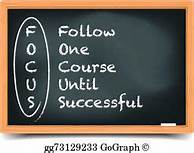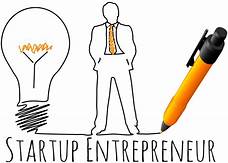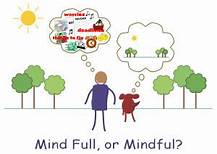8 Facts about Practicing Mindfulness for Entrepreneur Founders
A step-by-step guide to creating a full day of Mindfulness exercises to improve your focus, concentration, self-awareness, acceptance of situations & happiness + reduces stress.
Mindfulness Topics: Definition, Benefits, Need, Practice, Brain, Discipline, Resilient, Re-Energize & Focus, Drama, Listen, Present.
What does Mindfulness actually mean?
We hear so much talk about mindfulness and meditation but have you ever stopped to think about what this means? The very definition is confusing not only to you but to researchers, academics and experts alike. Here is a great definition offered by Dr. Jon Kabat-Zinn:
Mindfulness is maintaining a moment-by-moment awareness of our thoughts, feelings, bodily sensations, and surrounding environment, through a gentle, nurturing lens. Mindfulness also involves acceptance, meaning that we pay attention to our thoughts and feelings without judging them—without believing, for instance, that there’s a “right” or “wrong” way to think or feel in a given moment.
When we practice Mindfulness, our thoughts tune into what we’re sensing in the present moment rather than rehashing the past or imagining the future.Roots in Buddhist meditation, a secular practice of mindfulness has entered the American with Mindfulness-Based Stress Reduction (MBSR) program, which he launched at the University of Massachusetts Medical School in 1979.
A. Entrepreneur’s Guide: Mindfulness – Psych Compass
Benefits of Mindfulness & Mediation
- Increases your focus & concentration
- Improves acceptance of others
- Increases happiness by focusing you
- Improves immune health & well being
- Increases self-awareness
- Helps your sleep & naps
- Slows ageing process
- Reduces stress from work & commute
In recent years, research confirming the amazing effects of meditation has pushed mindfulness from a niche interest to a full-blown lifestyle. Putting mindfulness into practice can be challenging, especially at first.
The Need. As an Entrepreneur, your life is often saturated with stress, anxiety & lack of sleep. While a never-ending, fast-paced environment is often what leads an entrepreneur to success, over time, this very thing is what can cause you to burn out. Practicing meditation is a growing trend among entrepreneurs
Purpose of this Post is to explore how successful founders are relying on the benefits of meditation to keep them grounded and focused in the midst of an often chaotic environment. Additionally, we will go through some specific mindfulness meditation exercises and tips for how to get started and fit meditation into our busy lives.
Let’s practice it now:
- Take a break of a few minutes right now to simply pay attention.
- Close your eyes and get into a comfortable position. (seated, reclined or lying down,
- Notice your body. Take few deep breaths and as you’re breathing out, notice how your body feels. Notice the sensations throughout your body. Does your body hurt or feel uncomfortable anywhere?
- Allow your thoughts to come & go. While you’re paying attention to your body, let your mind do as it wishes. Do not try to control it, simply pay attention to it. What are your thoughts telling you? See your thoughts as an observer with no intention to change them.
- Be aware of your whole body as best as you can. Take another deep breath and open your eyes when you’re ready

B. How & Why do Entrepreneurs use Mindfulness – Meditation to keep them focused?
We’re seeing this practice popping up everywhere but why all the hype? Let’s start by covering how practicing mindfulness specifically helps entrepreneurs keep focused throughout their day.
1. It improves your Brain
The reason the more you practice mindfulness, the more mindful & focused you will be, because you’re actually changing the neural structure of your brain. According to research in cognitive neuro-science, practicing mindfulness actually decreases the pathways in your brain responsible for mind-wandering – while increasing the areas of the brain responsible for focus & attention. It will also decrease activity in the brain areas called the Amygdala – leading to a decrease in stress & anxiety. Finally, practicing mindfulness also increases the activity in the brain area responsible for (+) mood.
2. Mindfulness will keep you Disciplined
Most things in life are outside of our control. We can’t control the world around us, but thru consistent mindfulness training, you can learn to control your mind. A trained mind can be your best friend rather than your worst enemy – leading you down the road to success and to accomplish things you never thought possible.
3. Mindfulness will keep you Resilient
Starting a business is hard — you’re getting thots & opinions from everyone and the environment you are working in tends to be rocky & pocky. This can be a very isolating experience full of stress & anxiety. In the early stage startups, giving up is something many are faced with. Mindfulness will protect you from being your own worst enemy. Building this resilience will not only decrease the day to day anxiety, but it will also unlock creativity & focus you on your goals. Being able to think with a clear & creative mind will mean you & your team will be much better at tackling problems and getting stuff done + bouncing back from problems.
4. Savouring your Break – helps you Re-Energize & Focus
As an entrepreneur, it can become really easy to miss out on the pleasant things occurring around you – due to the constant busy lifestyle you tend to lead. As a result, you will miss out on opportunities to experience (+) emotions — which is one of the foundational building blocks of an effective focusing and long-term happiness. This will not only improve your psychological well-being, but it will also help you train your “focus” capabilities. This activity is another simple introduction to mindfulness meditation, however, this one does not require you to have a sitting practice. Rather, this activity can be performed anytime you are out & about and will train to you pay more attention to the sights, smells and sounds we often neglect.
How to do it.
- Take a Break. You can either set aside a time to go for a short walk each day or you can simply practice this by hustling (walking rapidly to meeting throughout the day
- Attention. As you walk try to pay attention to everything you can. Every sight, every sound + every smell – should be the focus of your attention
- All Positives. As you do this, really try to pick up on all of the positive things happening around you. (ie, the feeling of the sun on your skin or the light breeze on your face). You could also focus on a tree you’ve never noticed before, the architecture of a building, or the way people interact with each other.
+1. Whatever the case, try and notice all the (+) things around you.
+2. As you do this, try to pause for a moment and take them in — don’t just let them slip past you.
+3. Acknowledge each one of these deliberately and consciously. What about it makes it pleasurable to you?
- Viva la Difference. As you do these walks, try to notice something different every time you take the same path or try and switch the path – now & then – to take in something new.
The goal of this practice is to experience more pleasant things around you and to realize how much info comes & goes through our conscious awareness without us recognizing it. This is a great activity for beginners, because it will not only teach you to slow down every once and awhile, but it will also help you savour and focus on the simple pleasures in life. Both of which are a Mindfulness Techniques to train you to focus your mind on the present moment using all of your senses.

C. Mindfulness for Startup Founders – Blue Chili
5. Need for Mindfulness in Startup Entrepreneurs
Let’s apply meditation and mindfulness to the Lean Startup (TLS) model. Often, I’ll see Founders apply those principles with gritted teeth and a degree of self-harm: 1) not sleeping >4 hours a night, 2) drinking “meal-replacement” for every meal or 3) separating from their partner so they can work 24/7 and rarely shower. We often hear the Startup journey described as a “rollercoaster” – fast, dynamic, life-or-death. Your ability to navigate those ups & downs will have an enormous impact on your sense of well-being, and your longevity as a founder.
6. How to reduce your Drama
Initial Reaction. When things aren’t going the way you expect, where does your mind go? What are the stories you tell yourself? Most of us automatically assign a judgement to what is happening: “I screwed up, I’m a failure! This always happens! I’m a mess! “I ruin everything. I’m a terrible founder.”
Dramatizing. Our minds love drama because it gives responsibility away to something else: “I would have made it on time, but everything went wrong!” Notice how you communicate. Are you coming from a place of drama, exaggeration or catastrophe? Are you blaming? If you’re busy doing that, you’re not effectively focusing on the task at hand.
Mindfulness can help us take a step back and question the assumption we’re making. Are you really a failure because of this one set back? Does this really always happen? Taking that deep breath and questioning the reality of our self-talk can give us the means to get us through the crisis — and maybe even recognize that it’s not even a crisis at all.
7. Communicate well & Listen carefully
To enhance your relationships, truly give full attention to the sender. You’ll be a more effective Founder and leader if you drop any dramatic reaction and fully listen to the problem, before trying to solve. Easy problems can usually be solved on the spot, but complex problem take some thot. Take the time asap, to do a little mindfulness to solve. The best solutions will often come to you while you’re relaxing and meditating. If you push aside the noise of the daily challenges, your mind will usually send the solution to you. Otherwise, talk to your Mentors.
8. Always pay attention to the Present.
by purposefully directing your attention to– the present moment – while ignoring distractions. You’re not stressing – or even thinking – about the possibilities of the past or future. Lastly, you’re going to be paying attention to thoughts that arise moment at the moment and you are going to simply acknowledge them non-judgmentally. In other words, you’re not going to apply labels of good or bad, right or wrong to your thoughts.
Re-cap & a final Reminder:
Let’s recap what we’ve learned about the concept of mindfulness. Practicing these activities for a short period – when you need them – will lead to some amazing changes in your ability to focus, remain positive & become more aware of thoughts & feelings throughout your day. All in all, this practice isn’t for the faint at heart. It is something that must be continuously practiced – consciously & deliberately.
Hopefully getting started won’t seem half as bad after reading this post and performing the suggested activities. Understanding the concept of mindfulness can be daunting. Furthermore, you can implement the savouring walks activity to practice mindfulness when you need it. Over time, you will come to realize the great benefits that come from such a simple practice. In the meantime, take short breaks – often. (ie, 20-30 min and do a Mindfulness exercise if you need to.
Comments: Do you have anything else to share on Mindfulness?
Enhanced by Peter/CXO Wiz4.biz
For more Info, click on Founders.

